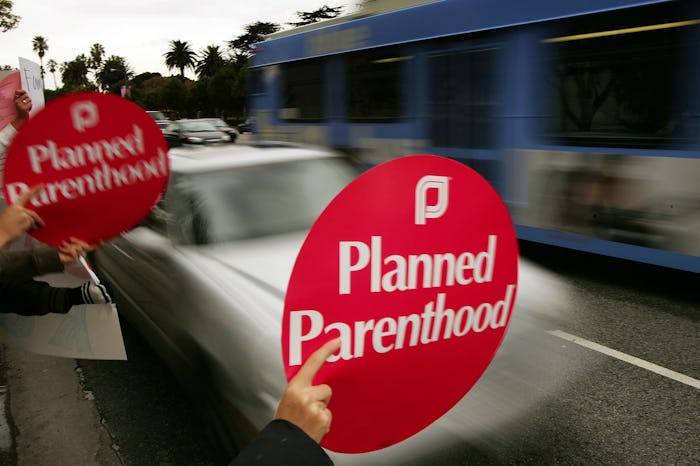Life

Community Health Centers Would Suffer Under Trumpcare
With its implicit promise to leave millions of people uninsured and to restrict abortion access so much that it's no longer a realistic option for many, the Republican answer to President Obama's Affordable Care Act could prove catastrophic for poor Americans. At the heart of both of these outcomes is the GOP's crusade against Planned Parenthood, which House Speaker Paul Ryan has said he'd like to deprive of federal money completely. Instead, the champion of the American Health Care Act (AHCA), or Trumpcare, wants to funnel those dollars into federally funded community health centers that serve low-income patients. But how would Trumpcare fund community clinics? And what would this mean for overall access to reproductive health care?
After the Republicans unveiled their much-anticipated plan to repeal and replace Obamacare in early March, it was obvious that, if eventually passed, it would dramatically reduce access to reproductive health care for many poor and rural women. That's because the architects of the AHCA aim to make it illegal for low-income patients who are insured through Medicaid to get their care at Planned Parenthood because it offers abortions, a move that would cause the organization to lose 75 percent of the $500 million it receives annually from the federal government to keep its clinics running, according to Vox. Federal funding makes up 40 percent of Planned Parenthood's overall budget.
If this were to happen, the nation's largest family planning provider would have a choice: shutter some of its locations or reduce its services (which include birth control, cancer screenings, STD tests) to recoup costs, or stop offering abortions in order to again qualify as a Medicaid-approved service.
For Ryan, an outspoken abortion opponent, that's no biggie. In fact, he believes that a health care landscape devoid of Planned Parenthood would be better, and that the nation's federally qualified health centers (FQHs) would easily pick up the slack.
"We think it's better to send these dollars to those clinics that do a very good job of giving women the services they need, the preventive services, without all the controversy surrounding Planned Parenthood," he said said on the subject before the AHCA went public, according to The Hill.
But these centers, which provide care to anyone who needs it regardless of insurance status, may also struggle under the weight of the AHCA as well. According to The Hill, these facilities actually flourished under President Obama's 2010 Affordable Care Act, which gave states the option to expand Medicaid to cover more of their residents. This resulted in combined increases in revenue of about $5 billion among the nation's 1,400 FQHCs between 2013 and 2015. By contrast, the AHCA would ultimately deny about 14 million people Medicaid coverage over the next 10 years, according to The Atlantic. And a decrease in the funding sources for these community health clinics is nothing but bad news for the roughly 25 million people they currently serve.
Meanwhile, the AHCA would further erode access to abortion services, whether from Planned Parenthood or a private entity. This provision stipulates that the tax credits that would be available to Americans to make purchasing health insurance on the private market more affordable could not be applied to plans that cover the procedure, according to NPR, except in cases or rape or incest or when the pregnancy threatens the mother's life. So, although abortion would technically still be legal, it would be so expensive (especially for Medicaid recipients who wouldn't be able to use Planned Parenthood) that it would be inaccessible for many. And that's exactly what Republicans like Ryan and Vice President Pence want — badly.
Significantly, transferring Medicaid patients seeking reproductive health care from Planned Parenthood to FQHCs may not be the seamless process Ryan seems to envision. In fact, Deb Polun, government affairs and media relations director for the Community Health Center Association of Connecticut, believes the opposite to be true.
"There are a lot of services that are provided by Planned Parenthood that are not really that controversial, and health centers do provide many of those same services, but it would be extremely difficult to take on all of those patients in one fell swoop," she told The Hill in January.
With 15 percent of people who "reside in areas without other health care clinics or medical practitioners who serve low-income populations" positioned to experience restricted health care access if the AHCA were to pass (and Planned Parenthoods were to close, as the nonpartisan Congressional Budget Office recently projected), simply forcing patients to get their care elsewhere is clearly not the answer.